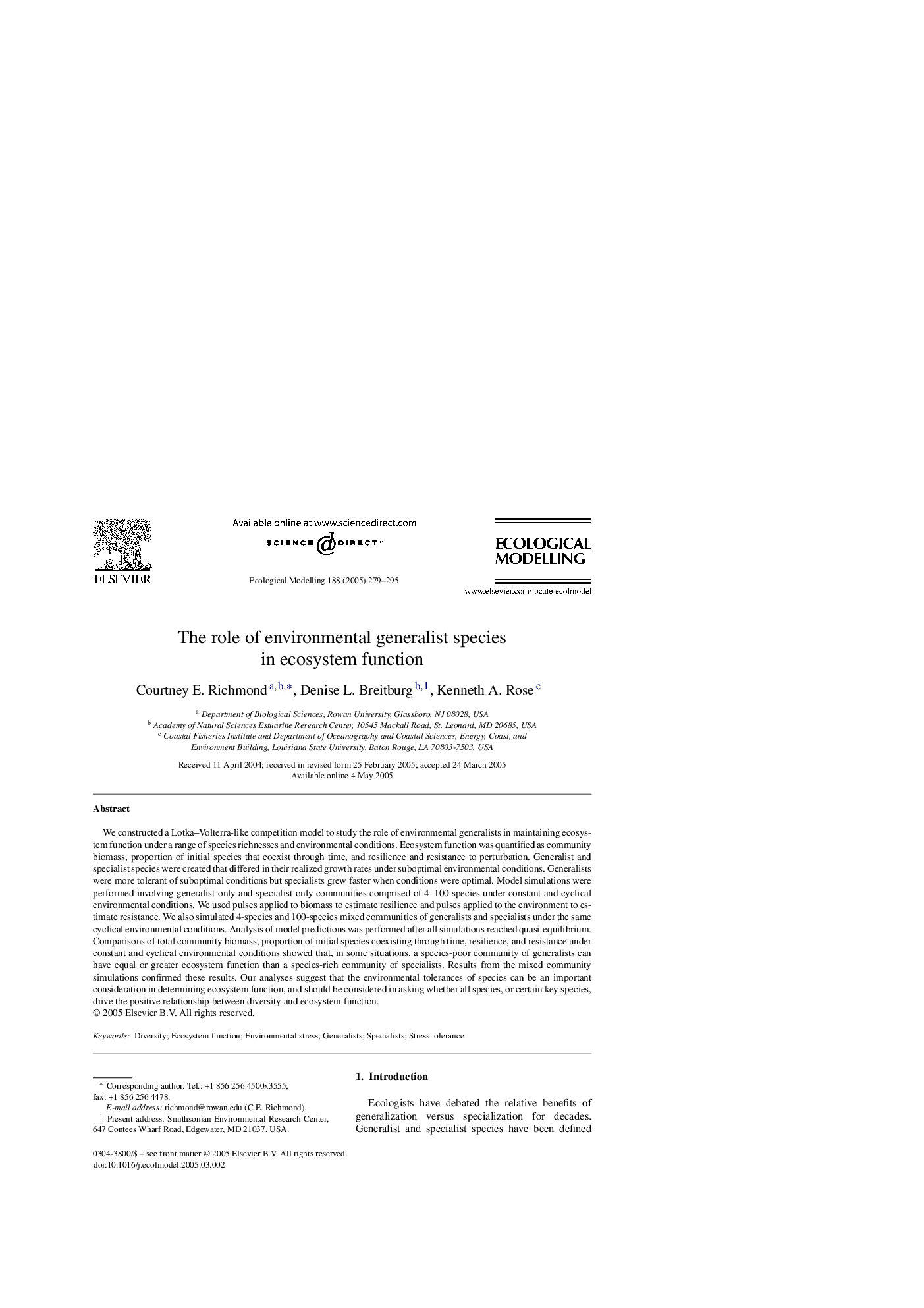| Article ID | Journal | Published Year | Pages | File Type |
|---|---|---|---|---|
| 9443518 | Ecological Modelling | 2005 | 17 Pages |
Abstract
We constructed a Lotka-Volterra-like competition model to study the role of environmental generalists in maintaining ecosystem function under a range of species richnesses and environmental conditions. Ecosystem function was quantified as community biomass, proportion of initial species that coexist through time, and resilience and resistance to perturbation. Generalist and specialist species were created that differed in their realized growth rates under suboptimal environmental conditions. Generalists were more tolerant of suboptimal conditions but specialists grew faster when conditions were optimal. Model simulations were performed involving generalist-only and specialist-only communities comprised of 4-100 species under constant and cyclical environmental conditions. We used pulses applied to biomass to estimate resilience and pulses applied to the environment to estimate resistance. We also simulated 4-species and 100-species mixed communities of generalists and specialists under the same cyclical environmental conditions. Analysis of model predictions was performed after all simulations reached quasi-equilibrium. Comparisons of total community biomass, proportion of initial species coexisting through time, resilience, and resistance under constant and cyclical environmental conditions showed that, in some situations, a species-poor community of generalists can have equal or greater ecosystem function than a species-rich community of specialists. Results from the mixed community simulations confirmed these results. Our analyses suggest that the environmental tolerances of species can be an important consideration in determining ecosystem function, and should be considered in asking whether all species, or certain key species, drive the positive relationship between diversity and ecosystem function.
Related Topics
Life Sciences
Agricultural and Biological Sciences
Ecology, Evolution, Behavior and Systematics
Authors
Courtney E. Richmond, Denise L. Breitburg, Kenneth A. Rose,
